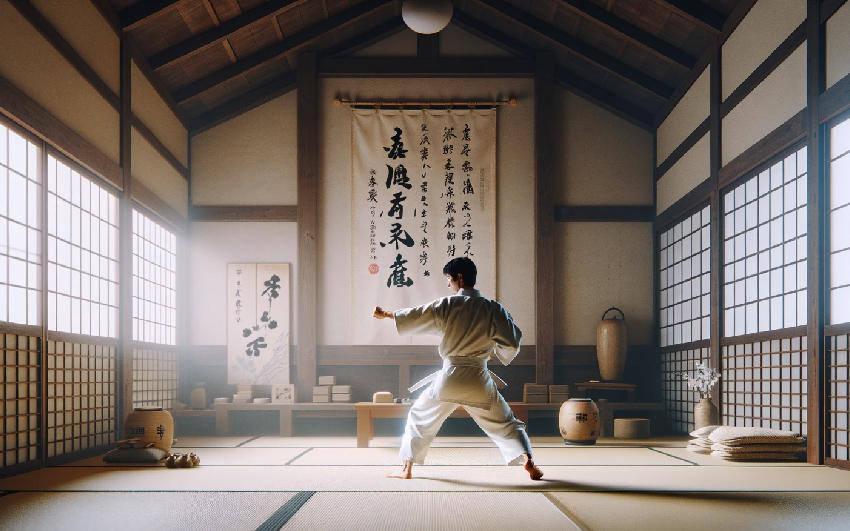Exploring the depth and breadth of karate is like journeying into a profound philosophy that extends far beyond the mat. This ancient martial art form not only molds the body but also the mind, teaching lessons that permeate daily life. In this in-depth exploration, we shall delve into the intricacies of karate, its philosophy, and its impact on daily practice. Are you ready to journey into the heart of this captivating discipline and discover the transformative power of karate?
Engaging in karate is not merely about mastering strikes, kicks, and defensive maneuvers. It’s about embracing a whole philosophy, a way of life that encourages discipline, respect, perseverance, and humility. It is these values that karate instills in its practitioners, impacting their lives far beyond the dojo. Get ready to uncover the philosophical layers that underpin this art form, revealing how daily practice extends to the way one navigates life itself.
Delving into the philosophy of karate, one quickly realizes that it’s a mirror reflecting the practitioner’s character, values, and approach towards life. The daily practice of karate is not confined to the physical realm; it echoes in the way we handle challenges, interact with others, and pursue our goals. Stay tuned as we delve deeper into this fascinating topic, shining a light on the transformative power of karate in everyday life.

The Philosophy Behind Karate
Karate is more than a martial art, it is a philosophy and way of life that extends beyond the dojo, or training hall. Let’s explore the deeper aspects of Karate practice.
1. Spiritual Development
In Karate, one of the key aspects is spiritual development. This philosophy emphasizes personal growth and inner strength. This is achieved through focused meditation, self-discipline, and dedication to practice.
- Meditation: Before and after each training session, practitioners sit in quiet reflection. This practice helps to calm the mind, focus attention, and instill a sense of peace.
- Self-discipline: The process of learning and mastering Karate techniques requires significant commitment and perseverance, teaching practitioners the value of hard work and patience.
- Dedication: Regular practice is a must in Karate. This consistency helps to develop discipline and enhances the ability to focus.
Karate: Beyond the Tatami
2. Physical Fitness
Physical fitness is another core principle of Karate. However, it is not merely about developing strength or agility, but about understanding and respecting your body.
- Strength: Through regular practice, practitioners improve their physical strength, particularly in the core and lower body. This leads to improved posture and body control.
- Agility: Karate also focuses on developing quick reflexes and flexibility. This not only enhances martial ability but also improves overall physical health and well-being.
- Respect for the body: Karate teaches practitioners to understand their physical limits and respect their bodies. This is reflected in the diet, sleep patterns, and general lifestyle choices of Karate practitioners.

Respect and Discipline: Keys to Karate
3. The Importance of Respect
Respect is an essential part of the Karate philosophy. This manifests in several ways, including respect for the sensei (instructor), fellow practitioners, the dojo, and oneself. This respect extends beyond the tatami, influencing the way practitioners interact with the world.
4. The Role of Discipline
Discipline, in Karate, is about more than obeying rules or following a regimen. It’s about commitment, perseverance, and personal growth. Discipline in Karate is the constant effort to improve oneself, both physically and mentally.
Understanding Kata: The Heart of Karate
Kata, or forms, are a key component of Karate practice. These choreographed sequences of movements embody the philosophy of Karate, encapsulating elements of meditation, physical fitness, respect, and discipline.
Through daily practice and understanding of these philosophies, Karate extends beyond the tatami, becoming a way of life. Each punch, kick, and block in Karate carries with it centuries of wisdom, discipline, and a path to self-improvement. As practitioners progress, they not only improve their physical abilities but also develop a deeper understanding of themselves and the world around them. This is the true power and philosophy of Karate.
Conclusion
In conclusion, unveiling the philosophy of Karate takes us beyond the confines of the dojo and the tatami. It’s not just about mastering the physical prowess and movements, it’s an intricate balance of spiritual growth, physical fitness, discipline, respect, and understanding the deeper meaning of Kata. The practice of Karate is a journey towards self-improvement, encapsulated in every punch, kick, or block, that stretches far beyond the physical. The principles and values learned through consistent practice extend into practitioners’ everyday life, shaping their perspective and interactions with the world around them. Meditation enhances mental clarity, discipline cultivates perseverance, respect fosters a positive social demeanor, and the focus on physical fitness encourages a healthy lifestyle. Karate is more than a martial art, it’s a life philosophy. The true power of Karate lies not in the strength of the punch, but in the strength of character it helps develop. 🥋💪🌟

